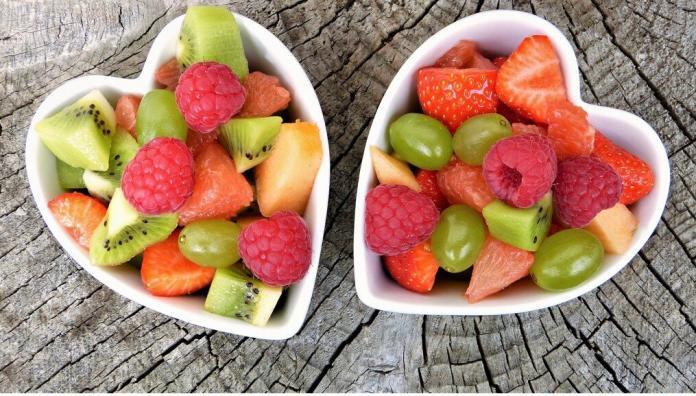Food is often viewed as the enemy when it comes to living a healthy life. There’s too much of it; it’s too sugary, overly processed, too fatty—the list goes on. However, that doesn’t need to be the case, nor should it be. Without value judgments, food is just fuel for your body. Some food items are more efficient than others, but none of them are inherently bad. However, some foods are better than others at helping you keep your body fit. Here’s how.
Protein Contributes to Muscle-Building

Proteins are made up of amino acids, which our bodies use for various activities, the best-known of which is muscle-building. You might not need to drink protein shakes like professional body-builders. Still, everyone has muscles, so everyone needs at least some protein. There are nine amino acids the human body can’t make by itself, so we have to get them from our food.
Generally, we get our amino acids from meat, dairy products, and eggs, but plant-based options are available for people who follow vegan or vegetarian diets. Soy contains all nine essential amino acids that you need to stay healthy. The United States Soybean Export Council is working hard to ensure global access to soy products.
Vitamin C Boosts Your Immune System

With the on-going COVID-19 pandemic, the strength of your immune system has likely been on your mind. Unfortunately, the virus is novel. That means that no matter how strong your immune system is, it doesn’t have an existing blueprint to base its defenses on. The novel nature of the COVID-19 virus is one reason it’s so dangerous and spreads so quickly.
Don’t discount vitamin C yet. Vitamin C is still vital to your health and well-being. It can reduce inflammation, help wounds heal, support several different types of immune cells, and keep your skin healthy. With the healthcare system strained to the breaking point due to the pandemic, anything you do to stay healthy can make a difference.
Balance Helps You Maintain a Healthy Weight
You can’t turn on the TV or open a magazine without being bombarded with weight loss and dieting ads, most of which are accompanied by airbrushed and digitally altered models that further enforce the idea that you are somehow too much and not enough at the same time. It isn’t easy given their prevalence, but do your best to tune those messages out. They don’t matter.
What matters is that you’re healthy and able to go through your daily activities comfortably. That looks different for everyone. Your height, frame, and genetics will all influence the weight at which you’re healthiest. Obesity is associated with increased health risks, but being underweight can be equally damaging. As long as you maintain a consistent, balanced diet and don’t over or under-eat, you will probably stay as fit as you need to for your lifestyle. Talk to your doctor or a nutritionist if you’re struggling to find balance.
Calcium Supports Strong Bones

You’ve heard that calcium is essential for keeping your bones healthy, and it’s true. As you’re growing, calcium helps strengthen and build your skeletal system. As you age, particularly if you’re a woman, you need to continue consuming enough calcium to keep your bones healthy and avoid the risk of osteoporosis. If you’re concerned about your calcium intake, make sure you’re also getting enough vitamin D since it aids in calcium absorption.
Dairy products like milk and cheese are the most common sources of calcium. However, there are other options if you follow a vegan diet or are lactose intolerant. Leafy greens like broccoli and spinach contain calcium, although generally less than you would get from a dairy product. Soy milk and other dairy alternatives are sometimes fortified with calcium and vitamin D. The calcium can settle out, so be sure to shake the container thoroughly before pouring.
Eating Well Keeps Your Blood Sugar Levels Stable
If you or someone you’re close to is diabetic, you’re already familiar with how important your blood sugar is to staying healthy. However, your blood sugar levels matter even if you don’t have diabetes. Glucose is our bodies’ primary energy source, but too much of it can increase your risk of heart disease, diabetes, and other health problems.
If you’re curious or unsure about a particular food, you can look up its position on the glycemic index. The index is a relative scale from zero to 100, where zero is foods that don’t contain carbohydrates, and 100 is pure glucose. Generally, you want to aim for foods on the lower end of the index that will provide you with a steadier, more slowly released amount of glucose.
There’s a reason maintaining a balanced diet is recommended so ubiquitously. It works. When you’re getting the right nutrients in the right amounts, you’ll feel better and stay healthier. Food isn’t a necessary evil, no matter what different diets try to tell you. It’s just necessary to keep your body fit, full stop.








